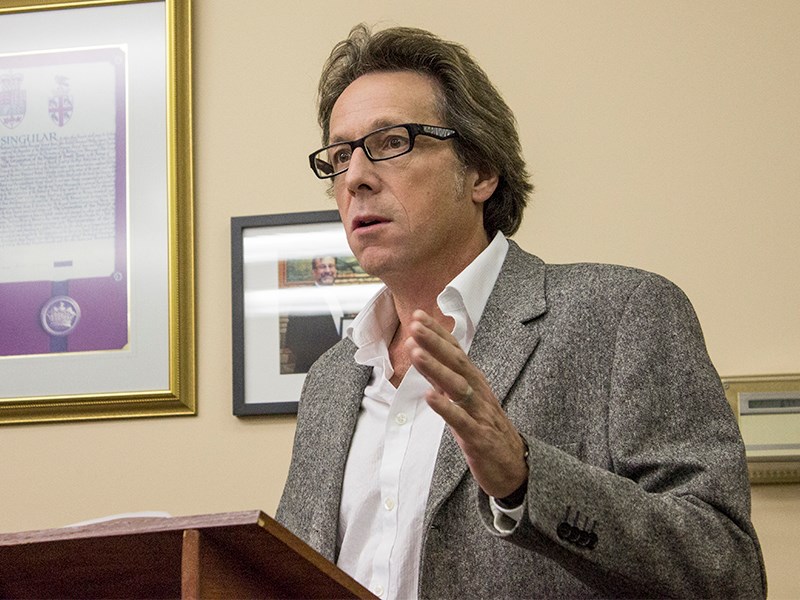City of Powell River council gave Catalyst Paper Corporation three more years of tax certainty by passing its new tax-revitalization bylaw for major industry.
The new program, adopted on October 19, raises Catalyst’s taxes by $300,000 per year for the tax years 2018 through 2020.
A city tax-revitalization bylaw for major industry has been in place since 2011, when it was set at $2,250,000 per year. In 2015, the maximum taxation payable by Catalyst was increased to $2,750,000 for three years. The new rate is set at $3,050,000.
Powell River resident Murray Dobbin attended the meeting and spoke to council before the vote.
“I'm really concerned by this because council may have lost track of who they actually represent,” said Dobbin. “There does not seem to be much attention paid to the facts of this case, that municipal taxes represent one per cent or less of Catalyst's overall operating costs.”
Catalyst vice-president and mill manager Fred Chinn also addressed council before the vote to share the company’s perspective on the new bylaw.
"This tax-revitalization program is critically important to the Powell River mill," said Chinn. "It's one more piece that helps build us the runway so we can be a profitable mill in the future and a long-term, viable employer."
Chinn said that through transition and reinvention, the local mill has had to run without critical spare parts and has a lot of heavy equipment nearing the end of its useful life.
“We're persevering and being innovative,” said Chinn. “If we can get our runway, we'll have a future.”
Chinn said he anticipates Catalyst will need between three and five years to bring the mill’s new food and medical-grade product production from the current approximate five per cent of output to 50 per cent.
Catalyst is part of the community and does what it can to support the town through funds for a lunch program at Brooks Secondary School, annual Christmas hampers and supporting the Powell River Kings hockey club, added Chinn.
"The one thing I won't compromise on is what we do for this community," he said.
Dobbin said his position is well-known and that he thinks council extending the tax-reduction program is unwarranted. He added that council’s job is to look out for the best interests of Powell River residents, particularly the growing number who are homeless.
"People are elected for a purpose," said Dobbin. "You don't get re-elected because you're nice people or because you care, though we know you do. You get re-elected because you make the right decisions.”
Mayor Dave Formosa said he agreed with Dobbin that municipal taxes only make up a small percentage of the operating costs to the whole corporation, but that is not how the Catalyst views its operations.
“They peg one mill against the other,” said Formosa. “That's what they do. It's dog eat dog and we’re the one bleeding cash.”
Formosa said the three-year bylaw is not a guarantee the company’s owners, three hedge funds, will not shut the mill down.
"They’re running on Hail Marys,” said Formosa.
Councillor and chair of the city’s finance committee Russell Brewer said he felt comfortable increasing Catalyst’s taxes by $300,000 per year as it will bring the city’s major industry rate almost to the provincial average. He added that there had been an assumption that the mill’s taxes would go back to the 2007 rate of $4.9 million if the tax-revitalization bylaw was not passed; that would not have been the case and council would have had to set a new rate, he said.
City councillor CaroleAnn Leishman said she is willing to give the mill a chance to turn things around, despite her feeling that the operation should be paying more. She said the majority of residents she has spoken to support the bylaw.
Leishman said she is not thinking about the next election.
"That's not what this is about,” she said. “It's about looking after what's best for the community."



